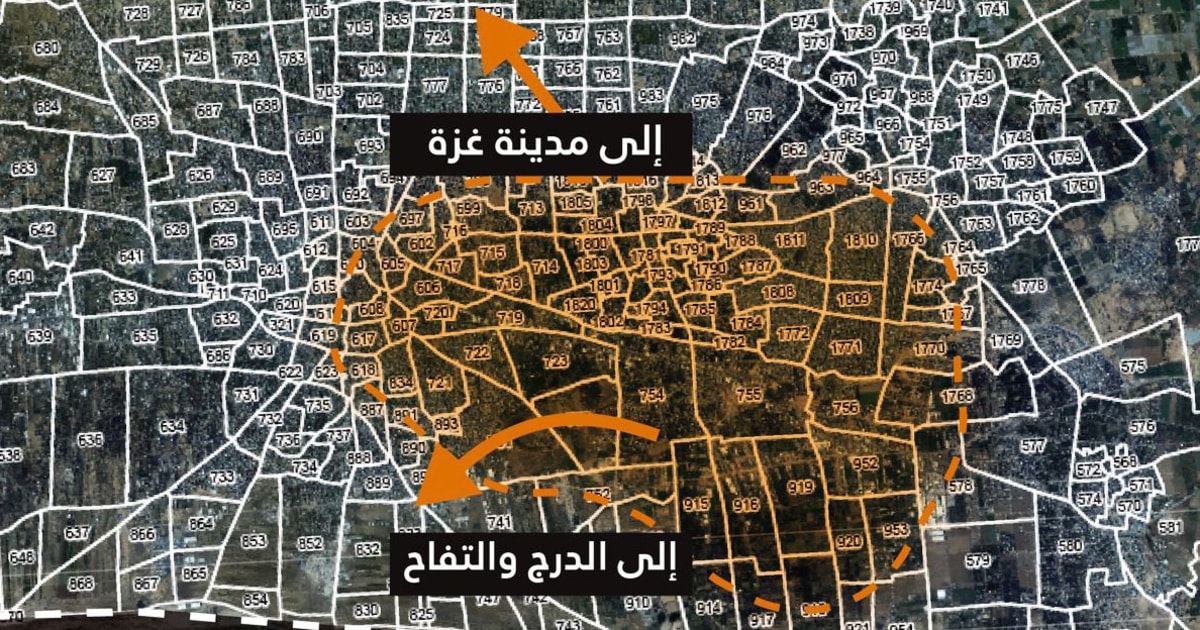
‘No place is safe’
Several of these worldwide groups have disagreed, however.
Asked whether Israel’s map could be useful, Juliette Touma, director of communications of the U.N.’s Palestinian relief agency, gave a flat rejection of its premise.
“No place is safe across the Gaza Strip including the south,” she told NBC News in an email. “During this war, no civilian infrastructure or facility has been spared, including hospitals, medical facilities, schools, and U.N. shelters.”
Another senior U.N. official, UNICEF spokesman James Elder, told a news briefing via video link Tuesday that “the so-called safe zones … are not scientific, they are not rational, they are not possible, and I think the authorities are aware of this.”
The London-based charity Medical Aid for Palestinians posted on social media that the map had “left people guessing which square will save their lives.”
Israel says it’s doing everything possible to protect civilians, including telling people living in northern Gaza to move south at the start of the conflict and away from the initial focus of its fighting. That prompted a mass exodus, and, humanitarian groups say, a worsening of the humanitarian crisis in this cramped territory.
A weeklong pause in the fighting saw some 100 hostages freed from Gaza in exchange for around 240 Palestinian prisoners held in Israeli jails. When the pause ended, Palestinians in Gaza were asked to move again, with residents in the city of Khan Younis, many of whom were displaced from elsewhere, told to make another southward journey, this time to Rafah on the Egypt border.
When asked about the criticism the maps have received, the IDF pointed to an interview between one of its spokespeople, Maj. Doron Spielman, and NBC News’ British partner, Sky News.
Spielman referred to a video last week showing Hamas leading hostages through Gaza about to be freed, and “hundreds of Gazans holding their phones videoing them.”
He said, “Clearly there’s enough power to power their phones when they are parading our hostages through Gaza. Now that same power to their phones will be [needed] to get the maps, download the maps and look at the flyers.”
An IDF spokesperson also told NBC News that it was using other methods to warn residents, such as calling and texting to urge them to leave their homes.
For some inside Gaza, all the warnings in the world would be no justification for forcing them to flee their homes.
“If people don’t leave, does that make them fair game?” Ghalayini asked. “The thing Israel needs to do to protect civilians is simple — it must stop its brutal assault.”






